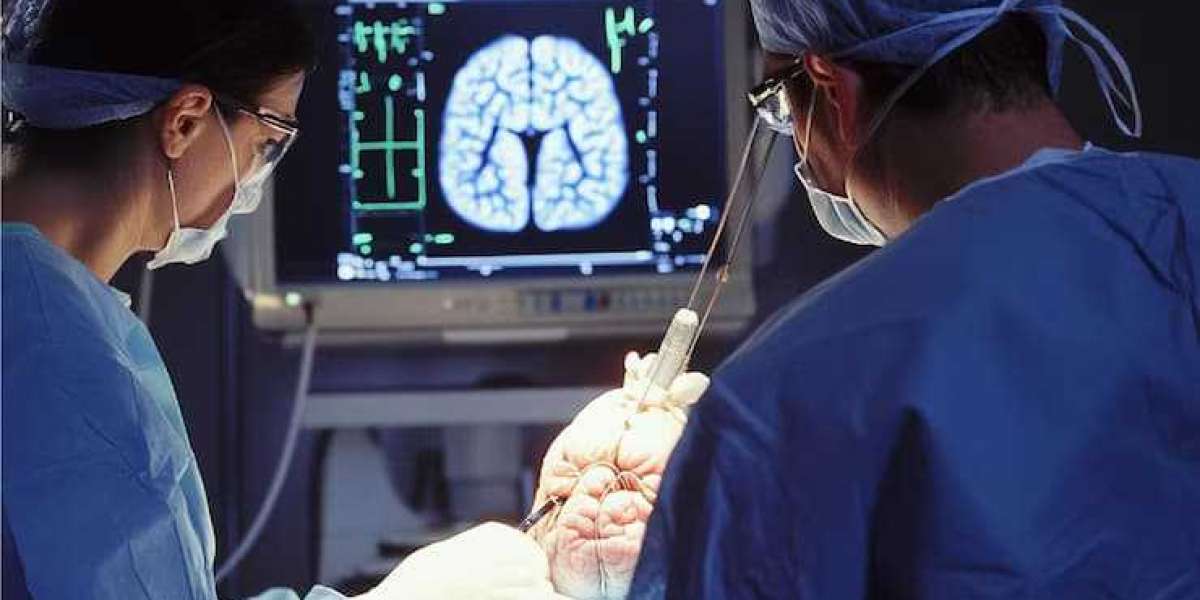Meningioma surgery, a crucial procedure for the removal of meningiomas—tumors that develop in the protective layers surrounding the brain and spinal cord—can be a daunting experience for patients and their families. Understanding the recovery process is vital for those undergoing this surgery, as it can significantly influence the journey towards full healing. This article will explore what patients can expect after meningioma surgery, the various stages of recovery, and practical tips for enhancing the healing process.
Understanding Meningioma Surgery
Meningioma surgery is performed to remove tumors that could potentially cause neurological complications, such as seizures, headaches, or vision problems. The surgery itself may vary in complexity based on the tumor's size, location, and the patient's overall health. During the procedure, the surgeon carefully removes the tumor while minimizing damage to surrounding brain tissue. This meticulous approach is crucial, as it not only aims to alleviate symptoms but also strives to prevent potential recurrence.
Following the surgery, patients typically spend time in a recovery room where medical staff monitor their vital signs and neurological status. This initial phase is critical for ensuring that any immediate postoperative complications, such as bleeding or infection, are addressed promptly.
Immediate Postoperative Care
In the first few days following meningioma surgery, patients can expect a variety of physical and emotional responses as their bodies begin to heal. It is common for individuals to experience fatigue, pain, and discomfort at the surgical site. Pain management is an essential component of postoperative care, and healthcare providers will often prescribe medications to help alleviate these symptoms.
Patients may also experience swelling or bruising around the incision site, which is a normal part of the healing process. In some cases, temporary neurological symptoms, such as weakness or numbness, may occur as the brain adjusts to the removal of the tumor. Healthcare providers will conduct regular neurological assessments to ensure that these symptoms do not worsen and that patients are on track for recovery.
During this time, it is crucial for patients to communicate openly with their medical team about any discomfort or concerns. This collaborative approach fosters a supportive environment that can ease anxiety and enhance the overall recovery experience.
Hospital Stay and Discharge
The length of hospital stay after meningioma surgery can vary depending on the complexity of the procedure and the patient’s individual recovery progress. Typically, patients may spend anywhere from a few days to a week in the hospital. During this time, healthcare professionals will closely monitor patients to ensure that they are recovering appropriately.
Before discharge, the medical team will provide detailed instructions regarding postoperative care. This includes guidance on wound care, medications, and any restrictions on physical activities. Patients will also receive information about potential warning signs to watch for, such as increased pain, fever, or changes in neurological function.
Preparation for discharge involves not only physical readiness but also emotional support. Patients should arrange for a caregiver or family member to assist them during the initial recovery phase at home, as they may not be able to perform routine tasks independently.
Returning Home: What to Expect
Once patients return home, the recovery journey continues. It is important for individuals to understand that healing is a gradual process and that they should allow themselves time to rest and recuperate. Fatigue is a common experience during the early stages of recovery, and patients should prioritize sleep and relaxation.
In the first few weeks following meningioma surgery, patients may experience fluctuations in their energy levels. Activities that once seemed simple can feel overwhelming, and it is essential to listen to one’s body. Engaging in light activities, such as short walks, can promote circulation and aid in recovery, but patients should avoid strenuous exercise until cleared by their healthcare provider.
Additionally, maintaining a healthy diet is crucial during the recovery phase. Nutrient-rich foods can support healing, boost the immune system, and provide the necessary energy for daily activities. Hydration is equally important, as it helps maintain overall health and wellness.
Emotional and Psychological Healing
Recovery after meningioma surgery is not solely a physical journey; it also encompasses emotional and psychological healing. Many patients may experience a range of feelings, including anxiety, depression, or fear regarding their health and future. These emotions are entirely normal and should not be overlooked.
Support from family, friends, and mental health professionals can play a significant role in navigating this emotional landscape. Patients should not hesitate to reach out for help or consider joining support groups where they can connect with others who have undergone similar experiences. Sharing stories and coping strategies can provide comfort and reassurance during this challenging time.
Additionally, engaging in relaxation techniques such as mindfulness, meditation, or gentle yoga can help alleviate stress and promote emotional well-being. Cultivating a positive mindset and surrounding oneself with supportive individuals can significantly enhance the healing process.
Follow-Up Appointments and Long-Term Care
Regular follow-up appointments with the neurosurgeon are essential after meningioma surgery. These appointments allow healthcare providers to monitor the patient’s recovery progress, assess any lingering symptoms, and conduct imaging studies to ensure that the tumor has been adequately removed. It is vital for patients to adhere to the follow-up schedule and communicate any new or concerning symptoms that may arise.
Depending on the tumor's characteristics, additional treatments such as radiation therapy may be recommended post-surgery to minimize the risk of recurrence. Patients should have open discussions with their healthcare team regarding the best long-term care plan tailored to their individual needs.
The Importance of Support Systems
The recovery journey after meningioma surgery can be lengthy and complex, often requiring a robust support system. Family members and caregivers can play a pivotal role in the healing process, offering emotional support, assisting with daily tasks, and encouraging patients to adhere to their recovery plans.
It is essential for caregivers to educate themselves about the challenges their loved ones may face during recovery. Understanding the physical and emotional changes that can occur enables caregivers to provide more effective support. Encouragement, patience, and empathy are invaluable during this time, as patients navigate their path toward healing.
Conclusion
In conclusion, recovery after meningioma surgery is a multifaceted process that involves physical, emotional, and psychological healing. Patients can expect a range of experiences during their recovery journey, from immediate postoperative care to long-term follow-up. By understanding what to expect and actively participating in their healing process, individuals can enhance their recovery outcomes.
For those seeking expert guidance and support throughout their journey, Robert Louis MD is here to help. Embrace the path to healing with confidence—reach out today to explore your options and take the first step towards a healthier future.







